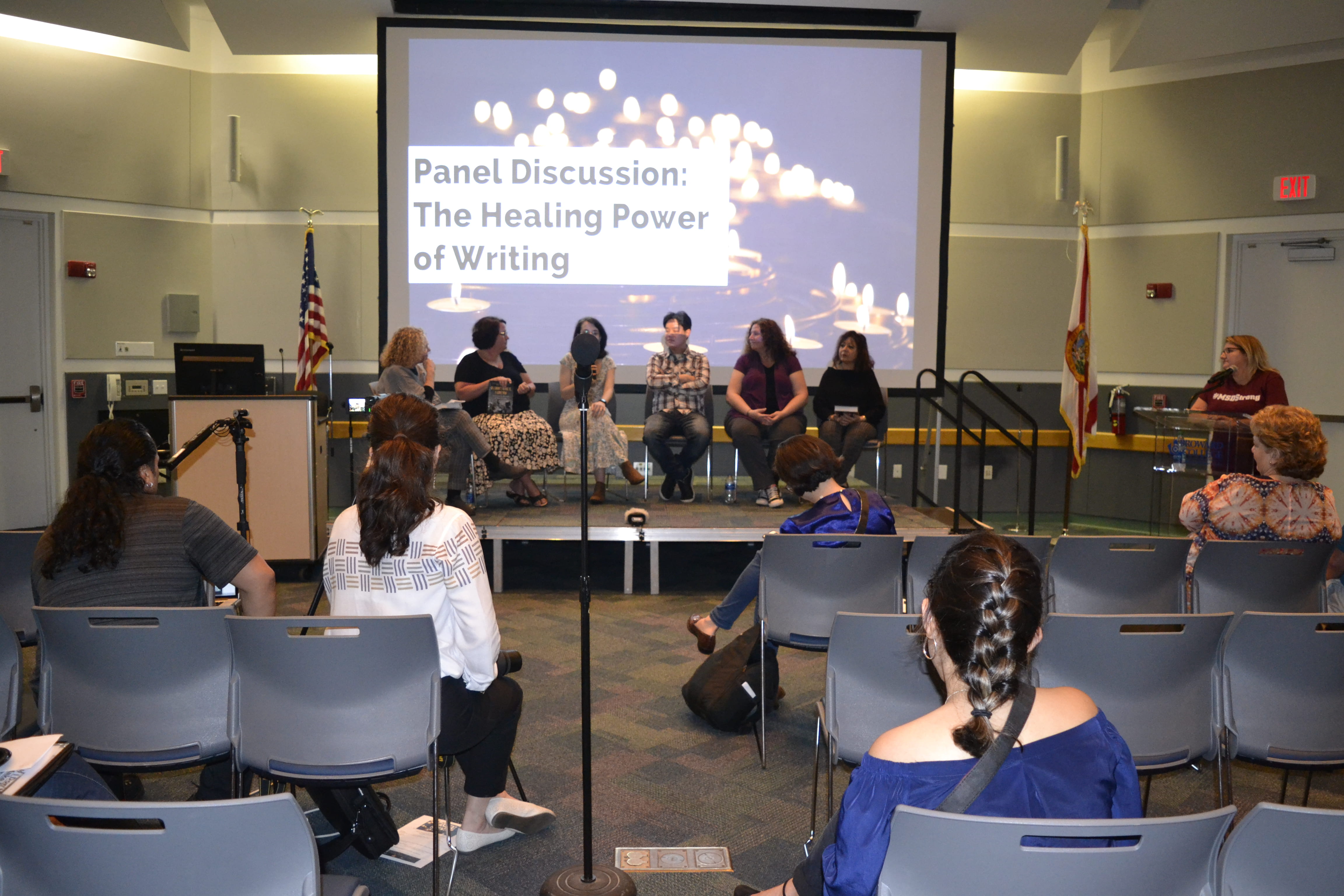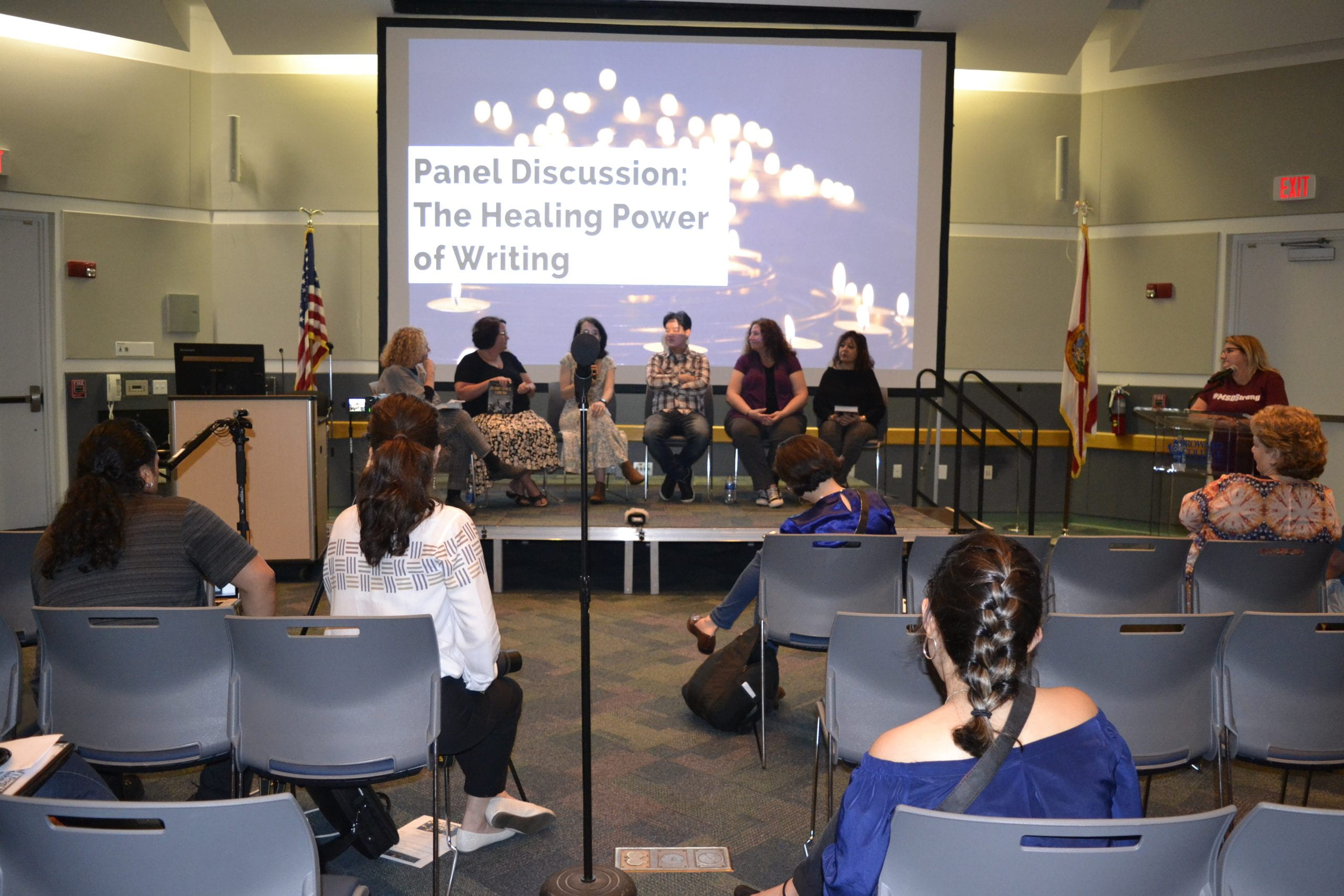Renee Darbonne
North Bureau Chief
Alex Shachter was an honors student who loved marching band, basketball and bothering his sister. Joaquin Oliver was an avid sportsman loved by everyone for his dedication to fairness and equality. Helena Ramay was a model student involved in numerous activities and cared immensely about human rights.
These are a few of the lives lost during the Marjory Stoneman Douglass massacre on February 14, 2018.
For this year’s anniversary of the shooting, Broward County’s North Regional Library hosted an event promoting “If I Don’t Make it, I Love You: Survivors in the Aftermath of School Shootings,” a book that explores art therapy and the healing power of writing. Those affected by the shooting and other instances of gun violence shared their stories and struggles.
Professor Laura McDermott and book author Amye Archer commenced the event commemorating the lives lost to senseless acts of violence.
They wanted to reassure the audience as well as Broward County that Broward College will honor the lives of Alyssa Alhadeff, Scott Biegel, Martin Duque, Nicholas Dworet, Aaron Feis, Jaime Guttenberg, Chris Hixon, Luke Hoyer, Cara Loughran, Gina Montalto, Joaquin Oliver, Alaina Petty, Meadow Pollack, Helena Ramsay, Alex Schachter, Carmen Schentrup and Peter Wang would forever be remembered.
Two years ago, Nikolas Cruz entered Marjory Stoneman Douglas armed with a semiautomatic rifle and opened fire onto innocent students and teachers getting ready to go about their day. After the Marjory Stoneman Douglas High School massacre, communities throughout South Florida gather together to remember and honor the victims.
Seventeen people lost their lives and many others were injured on February 14, 2018. In remembrance of their bravery, community members are stepping forward to share their experience.
McDermott expressed that the goal of the book was to bring awareness to all victims of the shooting and how they have navigated their lives in the following years. She, along with Archer, are optimistic in the ability of Broward County to come together and find solutions to mediate the loss of life.
The first speaker, Rachel Bean, recounted her initial reaction when she had discovered that Marjory Stoneman Douglas high school, her alma mater, had been involved in a shooting.
“While I was working, my supervisor told me that there was another shooting at a high school in Parkland, Florida. My heart dropped to my stomach and a layer of frost crept up my spine because I knew it was my high school.” Students throughout the county still feel the effects of the massacre.
Dara Haas, a survivor of the Stoneman Douglas shooting, recounts the aftermath of the shooting. “I was doing what a lot of people do and I was screaming into the Facebook void…and yelling at my neighbors…because I couldn’t understand how nothing was happening.” Haas expresses the feeling of confusion felt around the country. For her and other survivors, writing is a crucial element of processing the trauma brought on by the mass shooting.
The purpose of “If I Don’t Make it, I Love You” is to give those grieving the loss of family, students, and friends, a space to mourn without judgment. While others have analyzed school shootings, the purpose of “If I Don’t Make It I Love You” is to be the keeper of these horrific stories so that we may learn from them.
darbr4@mail.broward.edu

